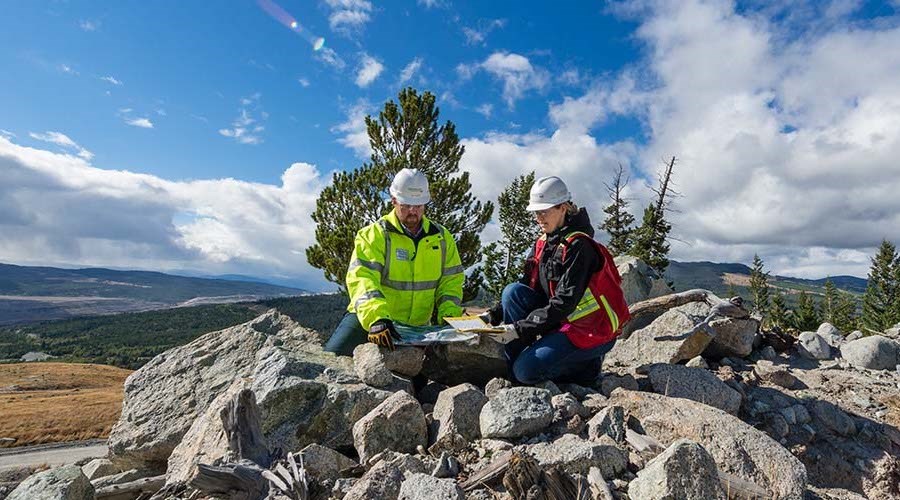The hostile takeover of Canada's largest diversified mining company by a foreign entity would weaken this country's chances of becoming a leader in critical minerals, according to industry watchers.
Critics of the recent unsolicited proposal by Swiss commodities giant Glencore to buy Vancouver-based mining company Teck Resources Ltd. say such a transaction would mean a "hollowing out" of Canada's mining industry at a time when the sector could be poised for a boom.
W. Scott Dunbar, head of the mining engineering department at the University of British Columbia, said he believes federal politicians should be concerned at the prospect of Teck — which has its roots in the 19th century and was known as Teck Cominco until 2008 — being sold to a foreign entity.
“There should be concern, if the government recognizes the loss. I’m not sure they do," said Dunbar in an interview. "I don't know if they've connected the dots there."
As part of its overall climate plan, the federal government has committed to a national critical minerals strategy — calling the exploration, production and processing of minerals including lithium, nickel, cobalt and zinc a "generational opportunity" for Canada.
Dunbar said while there is certainly potential there, without at least a few major domestic players Canada is unlikely to have a shot at being a global leader in the critical minerals space.
"If you haven’t got a well-developed mining industry, it won’t happen," Dunbar said.
“I think a company like Teck is the right size to promote that kind of thing, and help it along. I just think a big mining company like Glencore wouldn’t touch it.”
Glencore's proposal has been rejected by Teck's board as well as by chairman emeritus Norman Keevil, whose family owns the company's Class A shares together with Japanese company Sumitomo.
The board has said Teck would be in a better position with its previous plan of splitting its metal and steelmaking coal businesses into two companies, Teck Metals and Elk Valley Resources. The proposal will be voted on by shareholders later this month.
Teck, which has a market capitalization of $25 billion, is keen to expand its copper and zinc production to meet growing global demand for these metals, both of which are used in the production of electric vehicles and are considered to be key resources for the coming energy transition.
Teck Metals' flagship project would be Teck's QB2 copper mine in Chile, which is just wrapping up construction and commissioning and is expected to reach full production later this year. But Dunbar pointed out Teck also has critical minerals projects in the pipeline in Canada, such as Galore Creek in northwest С����Ƶ, which is considered one of the world’s largest undeveloped deposits of copper, gold and silver.
"A real benefit to Canada will come, if Teck is going to develop its metal deposits," he said.
The Canadian mining sector last went through a round of consolidation about 15 years ago, when a number of domestic companies were swallowed up by international giants. In 2006, nickel miner Inco was bought by Brazil's Vale, and another Canadian nickel company, Falconbridge, was bought by Switzerland's Xstrata (now part of Glencore).
Canada's largest aluminum producer, Alcan, was bought by Australia's Rio Tinto in 2007.
"(Those mergers) really hollowed out the Canadian mining industry, and some of it was not a positive for the Canadian economy," said economist and former Scotiabank executive Patricia Mohr in an interview.
"And it's in that regard that I do think Teck is one of the last big mining ventures that we do have that is controlled by Canadians. And I do think it matters.”
Mohr said she considers Teck to be a "Canadian champion" for the mining sector, adding the company's strong local presence in Vancouver and partnerships with the University of British Columbia has helped in the development of a talented workforce.
“I think that having the head office in Vancouver is very supportive to the mining industry in Canada," she said.
"A huge number of geologists live in Vancouver because of it."
Candace MacGibbon, who was CEO of INV Metals Inc. until its acquisition by Dundee Precious Metals Corp. in 2021, said when it comes to Teck and Glencore, there is an emotional element to the way some industry insiders are reacting.
“We have a sentimental attachment to our mining industry, those of us who have worked in it for decades, and we would be sad to see it go to a multinational," she said.
MacGibbon said while there can be real benefits to consolidation for certain Canadian companies, including access to much-needed capital, too many foreign takeovers risk weakening the sector.
“If we see a prolonged period of consolidation, where our companies are the hunted and not the hunter, we risk losing the depth of leadership and talent that allows us to boast we’re the dominant leader on the world stage," she said.
This report by The Canadian Press was first published April 17, 2023.
Companies in this story: (TSX:TECK.B)
Amanda Stephenson, The Canadian Press




